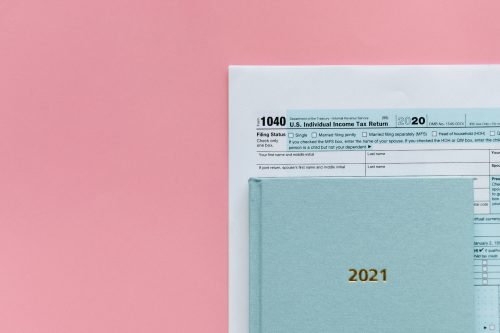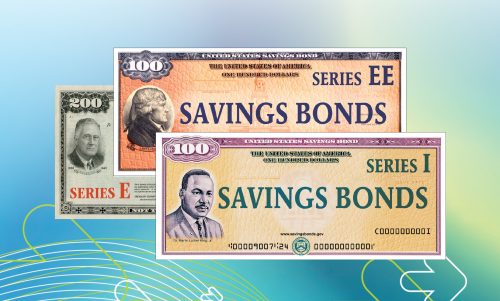- Checking your own credit score does not lower it: You can pull your credit report as many times as you’d like without impacting your score.
- Credit inquiries made by lenders as part of the credit application process have a small and temporary impact on your credit score.
- Monitoring your credit regularly, including before applying for credit, can help you make more informed financial decisions.
Keeping an eye on your credit score and credit report can help you stay on top of your finances. Your score may dip slightly when you apply for new credit — for example, a new credit card or mortgage — as lenders request credit information to decide whether to approve your application. However, checking your own credit report has no impact on your score.
This guide will cover why some inquiries have the potential to lower a credit score and why some don’t, the differences between hard and soft credit inquiries and how often you should be checking your credit to maintain good financial health.
Soft credit inquiries vs. hard credit inquiries
There are two types of credit inquiries: soft credit checks and hard credit checks. Soft credit inquiries don’t affect your credit score but a hard credit inquiry does. When you apply for a credit card or loan, lenders review your credit information and perform a hard credit inquiry that slightly impacts your score.
Hard credit inquiries are made when a lender pulls credit information from one or more of the three major credit bureaus — Equifax, Experian or TransUnion — to decide whether or not to approve an application for credit and at what interest rate. These inquiries are done with your knowledge and consent and can slightly lower your score for up to two years.
Soft credit inquiries — run by lenders as part of a credit application — do not impact your score. A potential employer may make a soft credit inquiry during the hiring process, for example, or a financial intuition might pull a potential borrower’s credit history before sending preapproved credit card offers. Soft inquiries may or may not show up on your credit report, but either way, they will not lower your score.
| Used For: | Why They’re Useful: | |
| Soft Credit Inquiries | Third parties, such as employers or landlords, performing credit checks Determining eligibility for preapproved credit offers Monitoring your own credit history and score | Allow you to monitor your credit history and score to enhance financial wellness |
| Hard Credit Inquiries | Deciding whether to approve or decline a credit application Determining what interest rate applicants qualify for Assessing whether applicants may qualify for other credit products | Help lenders and borrowers determine who qualifies for credit and what interest rates may be most appropriate |
How many points does your score go down for a hard credit check?
Your score will generally drop by less than five points when a hard credit check is run. As long as the rest of your credit history remains positive — for example, if you continue to make all your payments on time and use a manageable amount of your available credit — your score will increase again in a few months. The impact of a hard credit check on your score diminishes with time and no longer affects your score after two years.
How to minimize the impact of a hard credit check
Applying for any type of credit will initiate a hard pull of your credit information. However, there are a few strategies you can employ before you start applying to help minimize the effect on your credit score:
- Monitor your credit report: Borrowers should perform a soft inquiry to examine their own credit report and score before applying for credit. Examining your own credit may help you identify errors affecting your score, address any factors negatively affecting the score and gain a sense of the credit products you’re most likely to be approved for.
- Condense credit rate shopping: Most consumers shop around for auto or home loans. Smart shopping can reduce the impact on your score. FICO treats credit inquiries related to home and auto applications made within a 45-day period as one hard credit inquiry. VantageScore treats all inquiries made within 14 days as one inquiry, regardless of credit type.
- Only apply for credit you need: While rate shopping has a limited impact on your credit score, making several credit applications in a short time span — say, a few months — may hurt your score. It suggests to lenders that your financial circumstances may have changed negatively, and you may be seen as an at-risk borrower.
It’s important to monitor your credit report and score, and there are certain times when you should be actively checking it.
How often can I check my credit?
You can check your own credit as often as you’d like without fear it will impact your score.
Does your credit score drop when you check it? It may, but those changes reflect other behaviors — for example, a temporary increase in your credit utilization — and are not a result of checking your score. Credit scores often fluctuate month to month, so it’s important to focus on the overall trends on your credit report instead of minor changes to your score.
How often you check your credit score depends on your goals and preferences. One borrower may choose to check their score annually, while others opt for monthly or even weekly check-ins.
However, there are certain times borrowers are advised to check their credit reports and scores. These include:
- When applying for a mortgage or loan, such as a personal loan or car loan
- When opening a new credit card
- If you’re concerned about identity theft
- When you are actively trying to improve your credit and want to measure your progress
However often you choose to check your credit report, making a habit of doing it every so often can help you monitor your financial health and make more informed financial decisions.
The bottom line
Hard inquiries are inevitable, but the minor credit score drop that comes with a hard credit check is only temporary. As long as your overall credit is positive, there should be no significant change triggered by a hard pull of your credit score. What’s more, soft credit checks — including checking your own score — have no impact on your score, so you can check your credit report as often as you like without lowering your credit score.










